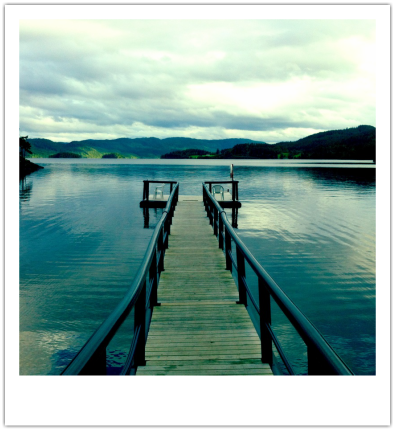
Guest blogger Rich Wilson explores the impact of finding comfort.
Even though I follow a God who promises an ever-present counsellor, the Holy Spirit, to comfort me, I have also developed coping mechanisms that bring comfort, at least for short while.
Quick fix comforts include switching on the telly, screen time with my phone or tablet, desktop research, play or work. It may also involve eating or drinking, going to the gym or meeting a friend. Many of these comforts are blessings…so what’s the problem? The issue is how my response to the desire for comfort affects my discipleship. Where I consistently go for comfort could well have the greatest impact upon who I am becoming.
In Our Head…We can comfort ourselves by playing out an alternative reality. We may choose to be bolder or less inhibited; we may fantasize about being more popular, more appreciated, more desirable or wealthy. In our head we can be in full control. It seems comfort eating and socialising was an option in Jesus’ culture and there are many accounts of him eating and socialising. In these stories Jesus seems to be thinking and acting on heaven’s agenda in a way that is natural and instinctive, energising and not tiring, as though he was already comforted and now able to share that comfort with others.
Solitude
‘But Jesus often withdrew to lonely places and prayed.’ (Luke 5:16) If Jesus modelled and embraced the practice of solitude, how much more do we need to embrace it in our culture of constant status updates, relentless advertising and ever expanding sources of news and information? Solitude is perhaps the greatest discipleship pathway we have and is also the most comforting; there no hint of consumerism and requires self-leadership to embrace it.
Solitude reveals yearnings and longings; it can reveal awkward and uncomfortable truths about our self worth, security or sense of significance. Solitude reveals secrets and perspectives that God is longing for us to hear and is just waiting for our full attention. We are then free to interact with things/others in a different way, and we aren’t consciously or subconsciously looking for those things/people to feed our core needs and desires because our core has already been comforted.
It could be said that all discipleship takes place outside our ‘comfort zone’. It is a place of risk, adventure, pain, suffering, uncertainty, faith, hope and love. Let’s embrace these wild and untamed spaces just as Jesus embraced the wilderness.
Rich Wilson is National Team Leader for Fusion – fuelling the fires of a national student movement www.fusion.uk.com
Even though I follow a God who promises an ever-present counsellor, the Holy Spirit, to comfort me, I have also developed coping mechanisms that bring comfort, at least for short while.
Quick fix comforts include switching on the telly, screen time with my phone or tablet, desktop research, play or work. It may also involve eating or drinking, going to the gym or meeting a friend. Many of these comforts are blessings…so what’s the problem? The issue is how my response to the desire for comfort affects my discipleship. Where I consistently go for comfort could well have the greatest impact upon who I am becoming.
In Our Head…We can comfort ourselves by playing out an alternative reality. We may choose to be bolder or less inhibited; we may fantasize about being more popular, more appreciated, more desirable or wealthy. In our head we can be in full control. It seems comfort eating and socialising was an option in Jesus’ culture and there are many accounts of him eating and socialising. In these stories Jesus seems to be thinking and acting on heaven’s agenda in a way that is natural and instinctive, energising and not tiring, as though he was already comforted and now able to share that comfort with others.
Solitude
‘But Jesus often withdrew to lonely places and prayed.’ (Luke 5:16) If Jesus modelled and embraced the practice of solitude, how much more do we need to embrace it in our culture of constant status updates, relentless advertising and ever expanding sources of news and information? Solitude is perhaps the greatest discipleship pathway we have and is also the most comforting; there no hint of consumerism and requires self-leadership to embrace it.
Solitude reveals yearnings and longings; it can reveal awkward and uncomfortable truths about our self worth, security or sense of significance. Solitude reveals secrets and perspectives that God is longing for us to hear and is just waiting for our full attention. We are then free to interact with things/others in a different way, and we aren’t consciously or subconsciously looking for those things/people to feed our core needs and desires because our core has already been comforted.
It could be said that all discipleship takes place outside our ‘comfort zone’. It is a place of risk, adventure, pain, suffering, uncertainty, faith, hope and love. Let’s embrace these wild and untamed spaces just as Jesus embraced the wilderness.
Rich Wilson is National Team Leader for Fusion – fuelling the fires of a national student movement www.fusion.uk.com
